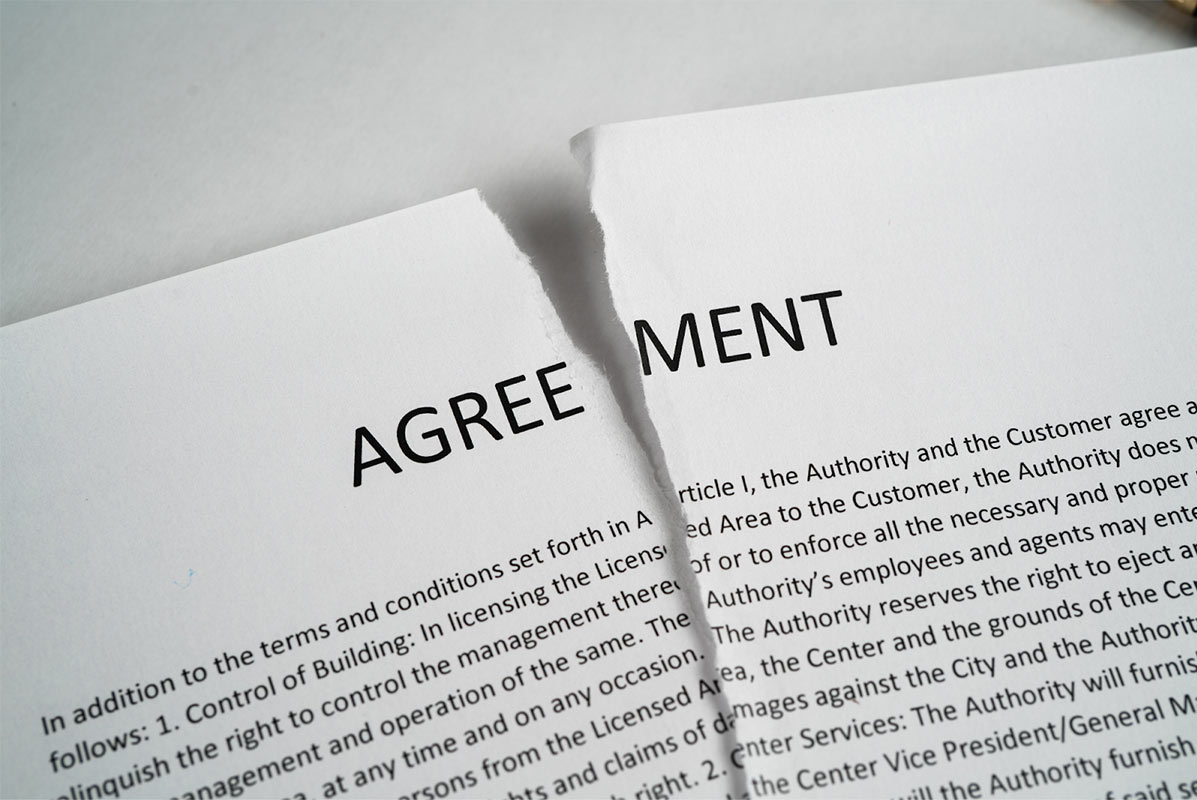
Disclosure Obligations in Residential Real Estate Transactions: What You Need to Know
Buyer Beware
Many people know that the doctrine caveat emptor, which means “let the buyer beware,” is applicable to real estate transactions. This means that, for the most part, it is the purchaser’s responsibility to identify any issues with a given property by having it properly inspected and inquiring about the condition of the property/structure that they are buying. However, the seller...

How Specific Performance can Remedy a Breach of a Contract of Purchase & Sale
What is a Contract of Purchase and Sale?
When one party sells a piece of real estate to another party, they enter into a Contract of Purchase and Sale, commonly known as a CPS. This is a contract that stipulates what is required of both parties in order to complete the transaction. If these requirements are not met, the CPS is considered breached and the sale does not go through. Oftentimes...

What to Do if Your Long-Term Disability Claim is Denied
Even the most carefully prepared long-term disability (LTD) claims can be denied by insurance providers. LTD insurance companies profit more from denying claims than accepting them, so they will do everything they can to deny claims when possible.
If you have a disability and your LTD claim is denied, it can be detrimental to you. Many people with disabilities depend on their LTD insurance...

Injured in a Car Accident? Wondering What Treatments are Covered by ICBC?
As discussed before, when you are involved in a car accident in B.C., you may have as many as three distinct legal claims: a claim for Part 7 benefits, a claim for vehicle damage, and a tort claim against a negligent driver. By default, those latter two claims are only available if someone else was at fault in causing the accident.
But ICBC Part 7 benefits are the no-fault portion of B.C....

Dog Bite Claims
Dog bites are traumatic experiences. Not only can victims acquire lasting injuries and disfiguring scars, but they can also develop a fear of dogs. These conditions can leave victims with pain, debilitating anxiety, and shame.
Who is at Fault?
You may be able to file a claim against the dog’s owner if a dog has injured you. However, in most cases, you must show the dog was inclined towards...

Backing Out of a Real Estate Deal
A flurry of residential real estate activity erupted over the last several years in B.C., resulting in competing offers, bidding wars and, often, astronomical prices. Fearing home prices would continue to escalate, eventually pricing them out of the market, many buyers jumped in, often presenting offers above asking and without conditions. Some buyers end up running into problems with...

Schoolyard Accidents
Schools are supposed to be safe for our children. Most school administrators and teachers are hardworking and conscientious, and most children have nothing but great memories of their schools and teachers. But sometimes terrible things happen at schools. Preventable injuries. Avoidable attacks. Faulty equipment.
Parents trust schools to protect their children. Schools must do everything that...

Personal Liability of a Director: are You at Risk?
A limited company is considered a “person” under Canadian law. As such, it is complete with its own legal right to do such things as enter into contracts, own assets, is subject to taxes, etc. A company is responsible for debts or liabilities it incurs in its operations. If, over time, the company incurs more debts that it can deal with and is unable to pay, it may become insolvent.
If the...

Exclusion of Liability Clauses: Ski-Hill Lift Tickets and Negligence Exclusion
It is typical for visitors of a ski resort to be required to sign a waiver excluding the resort from liability before being allowed to hit the hill. These waivers generally state that the person signing the waiver understands the risks involved in snowboarding and skiing and takes responsibility for their own potential liability. If a visitor does not sign the waiver, they will not be...

Has Someone Refused to Pay You? Getting Results in Small Claims Court
Understanding Small Claims Court
Small claims court is used to settle cases worth $35,000 or less (not including interest or expenses that the claimant is entitled to). Because of the relatively low financial stakes of the cases, small claims court procedures are less complicated than those of the supreme court. If you are considering taking someone to small claims court, here is a basic...
